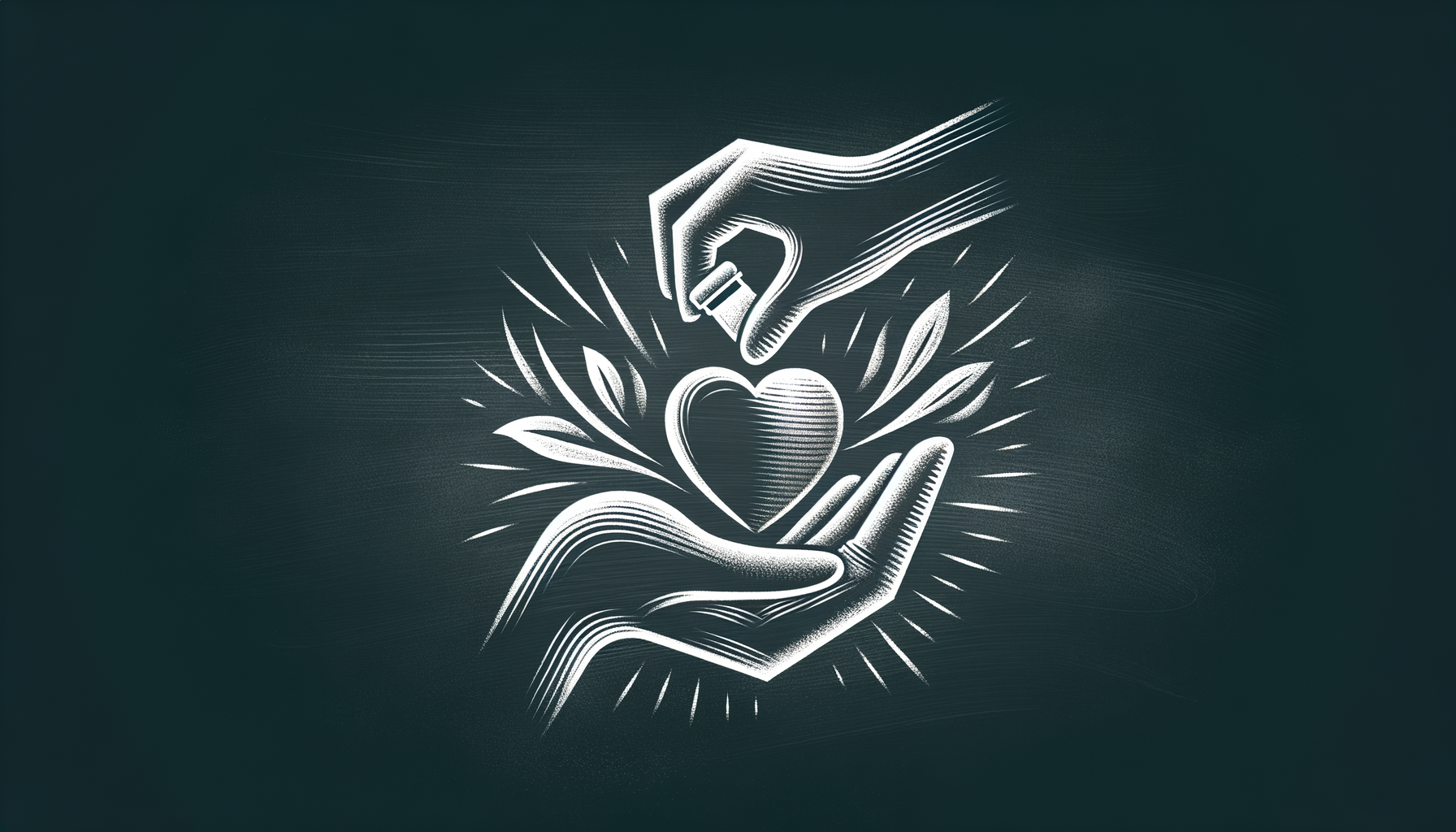Growing up, my grandma used to say, “You can’t make mashed potatoes out of bad spuds.” And while she was talking about actual potatoes (Idaho girl here), I’ve since realized this bit of wisdom applies to life—and especially to relationships. Some lessons in love come easy, blooming naturally like the lilacs outside that brewery my parents ran downtown. Others? Well, they hit harder, like trying to climb Table Rock on a scorching July day while underdressed and overly optimistic. In short: painful, but necessary if you want to level up.
I didn’t always navigate love with grace or confidence—nobody does. It’s a mix of trial, error, and the occasional Beyoncé song for morale. But looking back, there are lessons I wish someone had whispered in my ear sooner (preferably over fries at a dive bar). Here’s what I learned the hard way, so maybe you don’t have to.
1. You’re Not the Main Character (But Neither Are They)
We all love a good rom-com—the awkward meet-cutes, the dramatic declarations in the rain. I once believed I was starring in my own cinematic dating saga, with everyone else playing supporting roles. My “breakup speeches” became monologues. Ugh, cringe.
The reality? In relationships, you’re co-starring in ensemble chaos—a beautifully unscripted two-person drama. It’s not about memorizing lines or trying to hit every emotional beat on cue. It’s about listening, improvising, and not instantly turning into a victim when your partner misses the proverbial punchline.
Here’s the actionable piece:
- Check your ego. Are you treating your relationship like a one-way street? Stop playing director and ask yourself, “Am I actually listening, or just waiting for my turn to speak?”
- Grant grace. Not every shallow text or tone-deaf comment is an intentional slight. Sometimes, folks are just tired—or distracted by life’s equivalent of a bad lighting day.
2. Chemistry Can Make You Stupid (So Pack a Helmet)
You know that heart-pounding, butterflies-sloshing, "this must be love" feeling? Spoiler: it’s your brain on dopamine. And while it’s intoxicating, it’s also sneaky. Chemistry might be exciting, but compatibility—the bake-it-low-and-slow bond that lasts—is far more underrated.
Looking back, I can trace countless mistakes to chasing sparks while ignoring smoke alarms. One guy in Chicago could recite Vivaldi’s concertos but managed to forget my birthday. Another spoke fluent outdoorsmanship but could barely muster emotional honesty. Both times, I got burned.
Here’s how to protect yourself from your own romantic gusts of wind:
- Ask yourself, “Are we actually compatible, or am I just dazzled?” Shared values beat shared playlists in the long run.
- Watch for the red flags. You know the ones—love-bombing one day, radio silence the next. No amount of camping trips or artisanal cocktails can compensate for erratic behavior.
- Balance passion with restraint. Fall in love, but also fall asleep. You don’t have to stay up texting until 2 a.m. every night.
3. “Fixing” People Is a Full-Time Job (and Guess What? It’s Not Yours)
Somewhere in my early 20s, I mistook relationships for Home Depot projects. When faced with an emotionally unavailable introvert or an “I’m between jobs” type, I went full Joanna Gaines: hammers, paint, motivational Pinterest quotes—you name it. Nope.
Here’s what I wish I understood back then: People are not broken houses. They are individuals with their own blueprints and timelines for growth. Sometimes you’re not meant to stay and renovate. Sometimes, you’re just passing through to admire the architecture.
Your DIY-free toolkit:
- Recognize the limits of love. If they won’t open up after the fifth heart-to-heart, it’s not on you to pry them open.
- Prioritize reciprocity. Does this person add to your life—or do they simply take? If you feel like a relationship contractor, walk away before the invoice arrives.
- Save the fixer-upper urge for furniture. IKEA cabinets? Sure. Your partner’s entire worldview? Not so much.
4. Uncomfortable Conversations Are Relationship Vitamins
When I interned in Chicago, I spent a winter interviewing locals about their community struggles. That experience taught me one thing: Hard conversations may not be fun, but they’re essential if you want growth—whether you’re revitalizing a city park or tackling long-forgotten resentments with your partner.
Early on, I dreaded these talks. I’d avoid confrontation like a bad diner coffee, convincing myself that everything was “fine.” But “fine” is often code for “festering.” And as my grandma also said, “What you bury today, tomorrow grows roots.”
Steps to ease into discomfort:
- Use “I” statements. Avoid weaponizing words like “You always” or “You never,” and try “I feel…” instead. For example, “I feel disconnected” beats “You don’t care anymore.”
- Pick your timing wisely. 10 minutes before heading out the door is not the moment. Set aside time when you’re both calm, fed, and caffeinated (or slightly tipsy, if that’s your dynamic).
- Start small. Dip your toes into awkwardness before diving headfirst into your deepest fears. Practice flexing those communication muscles—it gets easier.
5. Alone Time Isn’t Lonely—It’s Necessary
Remember that phase in middle school when being single felt like a personal failure? Unfortunately, society often reinforces that mindset, pushing us toward relationships as if being alone were some kind of tragic character flaw. In reality, time spent solo builds the foundation for healthy relationships later. It’s how you figure out what you actually want—and also, what you bring to the table.
There was one summer back in Boise when I chose to embrace my singlehood. I hiked solo up Camel’s Back, spent evenings with books instead of bar-crawls, and bought myself concert tickets. And you know what? I wasn’t just fine—I was thriving. By the time I started dating again, I had standards stronger than a triple-espresso shot.
Ways to savor solitude:
- Go on dates with yourself. Have dinner alone, unplugged. See that indie flick nobody else wants to watch. Take up a hobby that’s joyfully yours.
- Define your “non-negotiables.” Clarity is priceless, and the best time to organize your priorities is when there’s no one clouding your judgment.
- Remember: Self-love is magnetic. People gravitate toward secure, self-assured individuals. Taking the time to know (and like) yourself pays off.
6. Healthy Relationships Are Unremarkable—In the Best Way
Admit it, dramatic love stories are just… spicier. Maybe it’s the hangover of 90s rom-coms or Taylor Swift’s angsty-laden hits, but we’re conditioned to believe love should almost hurt. (For reference, don’t take dating advice from Ross and Rachel.)
What I’ve actually learned? A healthy relationship is more like a slow river—steady, grounding, predictable in the best way. It ebbs and flows but refuses to flood your emotional landscape. When you stop chasing “electricity” and start valuing stability, your definition of happiness shifts. Spoiler: It feels a lot more serene.
Cornerstones of that steady connection:
- Security over spark. A person who calls when they say they will might not seem swoon-worthy at first—but it’s the foundation of trust.
- Celebrate the mundane. Making Trader Joe’s hauls a shared ritual can be just as romantic as a big date night.
- Drop the drama. Life throws enough curveballs on its own—if your relationship can be your calm, hold onto that.
The Bottom Line: Love Isn’t Always Grand, But It Should Be Good
If I could send a time-traveling Post-it note to 19-year-old Leslie, it’d read: “It’s OK to learn as you go. Just aim for something better than ‘fine.’” There’s no cookie-cutter formula for love—no one-size-fits-all. Instead, it’s about showing up, getting it wrong sometimes, and learning to laugh about it after.
Whether you’re flirting at a brewery show, navigating awkward first dates, or cultivating quiet, steady love—know this: Every misstep and victory teaches you something. And no matter where you’re at on your journey, you’re going to be okay. Better than okay, actually.
Because in the end, the best mashed potatoes aren’t just about good spuds—they’re about patience, intention, and learning to season as you go.




















